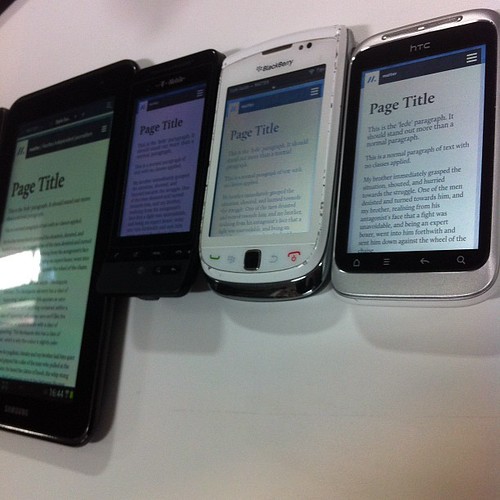-
Testing, testing…
0 July 19th, 2013App Development, mobile applications
July 19th, 2013App Development, mobile applicationsTesting, 1,2…
App development seems to have taken the old adage “Success is 10% inspiration, 90% perspiration” as its MO. Apps start life as ideas, usually along the lines of “Why isn’t there an app that’ll <insert function>?” The developer finds a way to achieve the aim and spends lots of time coding before handing it to the testers.
Testing is one of the most vital processes in app development. It’d be almost impossible to release a fully functioning app on the first coding and the app testers need to have an entirely fresh and different skill-set to the coders.
 Imagine it this way; a professional app developer understands the concept of the app, its primary purpose, the method of execution and the manner in which it was meant to be used.
Imagine it this way; a professional app developer understands the concept of the app, its primary purpose, the method of execution and the manner in which it was meant to be used.Once released, the general public usually lack the years of software development experience yet still need to be able to use the app successfully. Once launched, SuperApp v1.0 will be used in ways that were unlikely to be thought of during coding. App users tend to hit wrong keys, go back when they’re not supposed to, become impatient and quit functions or enter multiple options. They will also try to make an app perform outside its intended purpose.
Herein enter the testers, those whose job it is to envisage what app-buyers are likely to do and what will happen when they do.
One of the problems that testers face is time constraint. The ability to take three months to exhaustively study the software will likely lead to a thorough job, but for the majority, testing cannot take this long, due to the costs involved.
Instead, testers will often concentrate who will actually use the app. Novices tend to make silly mistakes not predicted by developers, but ones that can render an app unusable to them. Intermediate users understand how apps are supposed to be used, but will try and go beyond the initial boundaries of the app function and cause issues. Experts, hackers and even competitors will try and break down the work done by the developers and the app itself needs to be protected from theft of intellectual property or reverse engineering. The ability of the tester to take on another persona can help hugely in projecting where apps need to have tighter code or better security.
Other key issues include identifying which OS or devices the app needs to work on, which sets the parameters of where the app will be tested. They ask whether it’s supposed to work with external devices, which dictates what other products will be needed to perform the testing. Is there a technical support team who can assist with ongoing problems and provide a knowledge base, or have the developers already lined up a number of beta testers to assist with feedback?
Most importantly, testers check if the app is able to achieve the tasks it was supposed to before seeing if it can achieve tasks it wasn’t originally designed to.
All of these can massively influence whether an app is successful. Any product which either doesn’t do what it says on the tin, or only performs to the minimum standard is unlikely to be taken to heart by the public. A good product tester knows what users want and how to go about making sure that the app is able to live up to their expectations, providing the vital 90% perspiration needed for success.
Image source: Flickr




Recent Comments